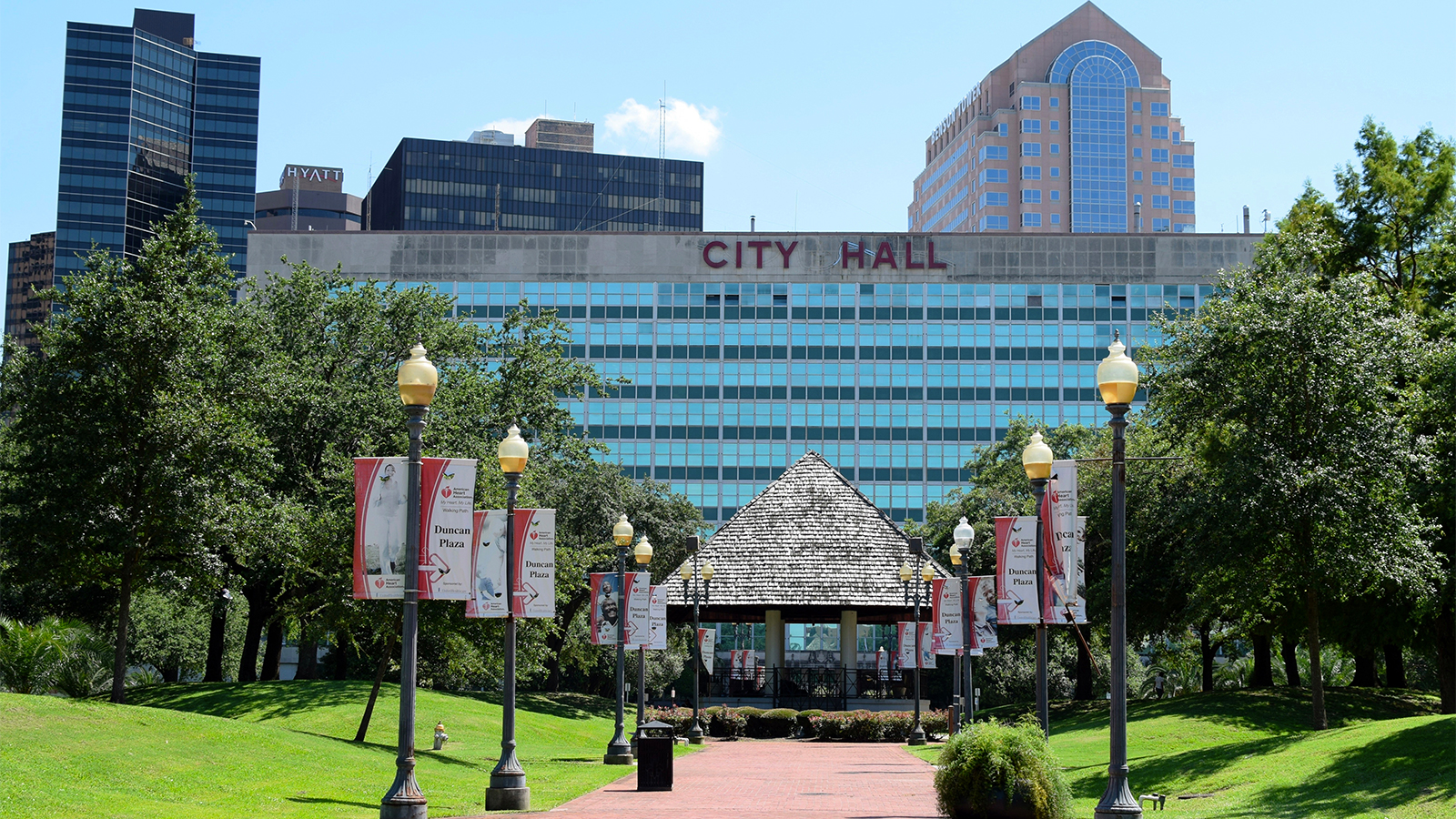Over the past several months, scores of people showed up to public meetings in New Orleans in support of building a natural-gas power plant. It turns out that as many as 100 of them were paid to be there.
The Lens, an investigative news site, recently reported that people were paid $60 to attend and $200 to speak. Entergy, the company behind the power plant, said that it hadn’t authorized the payments, but it did take some responsibility. After an internal investigation, the company said that it had contracted with a public affairs firm, the Hawthorn Group, which then subcontracted another group, Crowds on Demand, to hire the supporters. Grist called and emailed Entergy for a comment and has yet to get a response.
It’s a prime example of astroturfing, the practice of creating an image of grassroots support for a cause. And while this case may seem shocking, maybe it shouldn’t. Astroturfing in the U.S. dates back nearly a century, and energy companies have a history of getting involved in it through public affairs firms.
“The energy sector has always been relatively active in this,” says Edward Walker, a sociology professor at University of California, Los Angeles who wrote a book about how public affairs consultants drum up grassroots support. He traces the roots of astroturfing back to the 1930s with Campaigns, Inc., the world’s first political consulting firm, which also worked for oil companies.
In the 1970s and 1980s, the number of public affairs consulting firms ballooned, Walker says. “Corporate America was really back on its heels during that period,” he explains, “and started to figure, well, we need to be doing a lot of the same things that the social movements and activist groups and labor unions have been doing.”
Astroturfing is supposed to stay hidden. But some companies have been exposed doing it. In 2009, Greenpeace obtained a memo detailing the American Petroleum Institute’s plans to recruit “Energy Citizens” for rallies opposing legislation to cut carbon dioxide emissions and promote cleaner energy. A few days later, Grist got a list of 21 planned “Energy Citizen” events and found that most were planned by lobbyists, many of whom worked for API or its local affiliates.
That same year, the lobbying group Bonner & Associates forged letters against American Clean Energy and Security Act of 2009, also known as the Waxman-Markey climate bill, which would have established a national cap-and-trade program. At least twelve letters were sent to Democrats in the House of Representatives, appearing to be signed by a number of groups, including a local chapter of the NAACP. In one, the firm assumed the identity of Creciendo Juntos, a nonprofit network that tackles issues in Charlottesville’s Latinx community, and sent it to House Representative Tom Perriello. It turned out the lobbying firm had been working for the American Coalition for Clean Coal Electricity, an industry-backed outfit working with Hawthorn Group — yup, the same one tied up in the recent New Orleans case — which contracted Bonner & Associates.
The cap-and-trade bill was passed by the House but eventually died in the Senate.
Climate Investigations Center director Kert Davies thinks astroturfing happens more often than people realize. “I would assume the best of it we never see,” he says. “That’s what it’s intended to be: invisible. So there’s probably a lot happening, or that has happened, to people that they’ve never known about.”
About 40 percent of Fortune 500 companies were clients of at least one of these so-called “grassroots lobbying” firms when Walker crunched the numbers back in 2007, he says. “The practices are incredibly widespread. That’s not to say that everyone’s doing astroturfing.” Sometimes corporations work with firms to mobilize their employees or shareholders — it’s not necessarily about generating the illusion of public support.
In the New Orleans case, The Lens couldn’t find any laws preventing the pro-power plant campaign. But the practice sure looks unethical, Davies says, according to the industry’s own code of ethics. The Public Relations Society of America’s code specifically rules out creating fake grassroots campaigns.
The New Orleans City Council approved Entergy’s plant in March, before reports revealed the astroturfing efforts. Community groups have pushed for an investigation and a re-hearing on the decision. The council has also decided to hire a third-party to investigate and has ordered the company to hand over documents that support their internal investigation.



